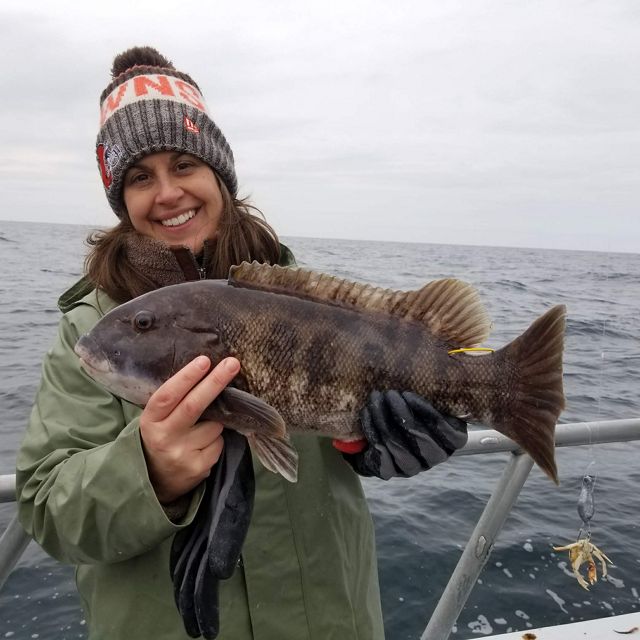Kate Wilke
Fisheries Scientist, Virginia
Arlington, VA

Kate Wilke Fisheries Scientist © Kate Wilke
Areas of Expertise
Fisheries management, marine policy, conservation partnerships, energy siting and migration
Biography
Kate Wilke's work is centered on protecting marine habitats for the benefit of both people and nature. She works with fishery managers to create science-based regulations that promote efficient, sustainable harvest of fresh seafood. She also addresses the challenges of identifying the most important—and vulnerable—habitats and designing rules to protect them for the benefit of the fish and marine life that rely on them for food, protection and reproduction.
A current area of focus is the habitat impacts from detrimental fishing practices. Over a period of five years, from 2015-2020, Kate led TNC’s work to reform management of the largest fishery on the Atlantic coast, the Atlantic menhaden fishery, to create catch limits for this keystone species.
Climate change will also have an impact on fisheries as water temperatures rise and cold- and warm-water species overlap. Collaborating with Atlantic coast fishery managers and stakeholders on scenario planning will help inform management decisions to better anticipate habitat shifts
Working with the Atlantic States Marine Fisheries Commission (ASMFC), Kate is part of efforts to characterize Fish Habitats of Concern, paving the way for stronger protection of these habitats. There are more than 25 fish species along the Atlantic coast that are not currently protected under Essential Fish Habitat provisions of federal legislation. Fish Habitats of Concern are a subset of Essential Fish Habitat that is particularly ecologically important, sensitive, vulnerable to development threats and/or rare.
Kate is also focused on implementing environmentally compatible offshore wind energy. Over 29,000 MW are expected to be developed along the Atlantic Coast from Maine to South Carolina by 2035. The Virginia offshore wind team is working with the New York, Northeast, and Southern Divisions to establish an Atlantic Ocean Wind Energy Action (OWEA) team that will define compatible siting, installation and operation of offshore wind; share content to enable consistent and timely responses from TNC to public comment opportunities and other forms of project participation; and drive a collaborative science agenda around site-specific and cumulative impacts.
Kate is the appointed Virginia representative to the Mid-Atlantic Fishery Management Council and a member or the Atlantic States Marine Fisheries Commission Habitat Committee and American Fisheries Society.
Kate has Master of Science degrees in Biology (Fisheries Science) and Marine Policy from the University of Maine and a Bachelor of Science degree in Biology from Bowling Green State University.